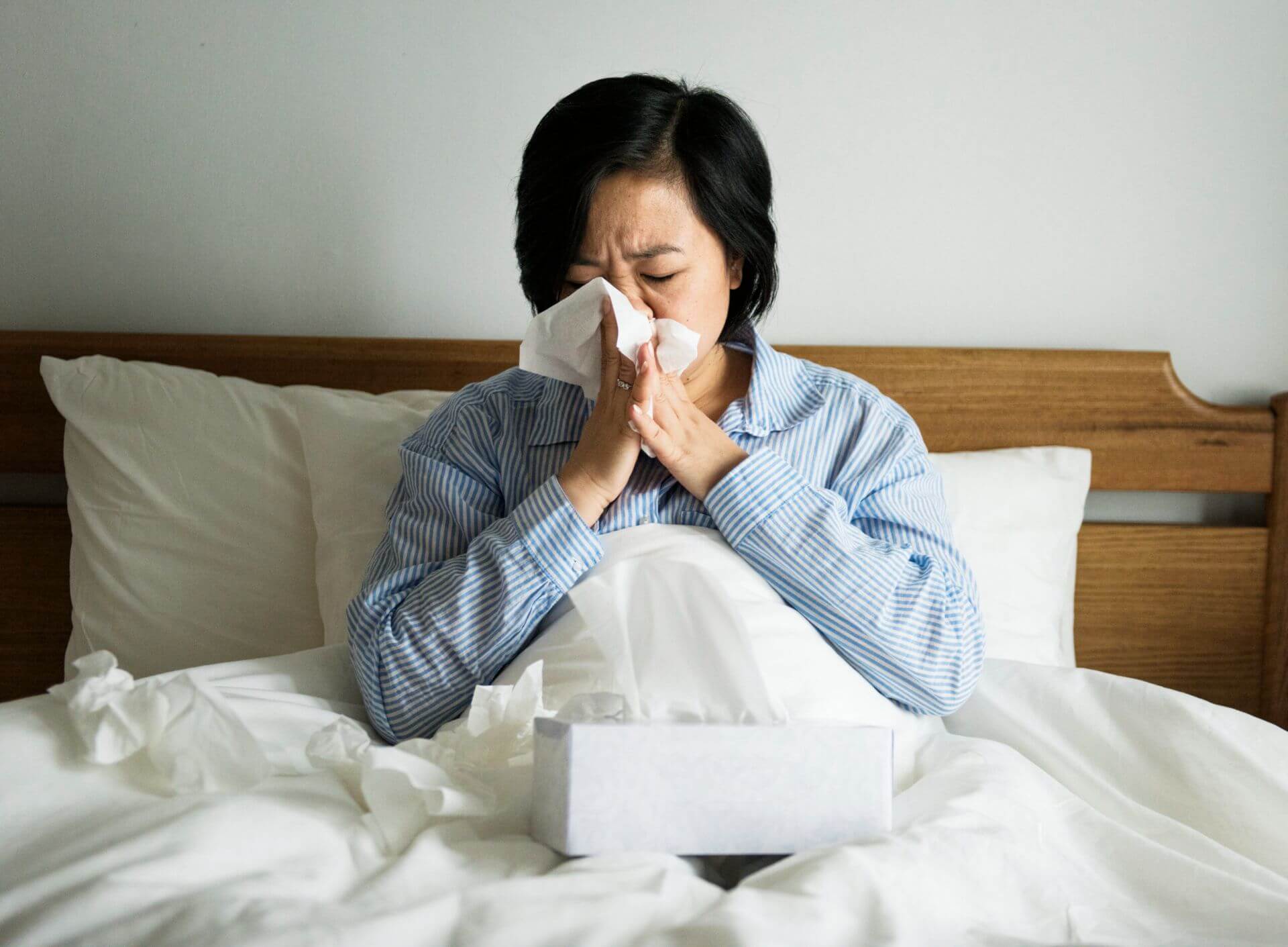There are many ways that your nasal pathways can become blocked, and it can be a very uncomfortable sensation when it happens. Many people believe that a stuffy nose is caused by too much mucus in the nasal passages, but a stuffy nose is actually caused by blood vessels in the sinuses that become inflamed and irritated. This irritation can have a few different triggers from the common cold, the flu, allergies, or a sinus infection. Fortunately, there are a few different options for nasal congestion treatment.
Treating Nasal Congestion
Sinusitis is an inflammation of the sinuses. These are the air-filled cavities within the bony structures of the cheeks, behind the eyebrows, on either side of the nose, and behind the nose. When a cold, allergies, or more cause the membranes of your nasal pathways to become inflamed and irritated, they begin to make more mucus to flush out whatever is causing the irritation. This can be very uncomfortable when it happens. When you find yourself with a stuffy nose, it can be a good idea to talk to your doctor about your symptoms as you might have a sinus infection. Sinus infection symptoms include:
· Headache
· Facial pain
· Congestion
· Runny nose
If you think you might have a sinus infection, you can see your doctor or allergist for a proper diagnosis. In most cases, treatment is easy, and by stopping a sinus infection early, you can avoid later symptoms and potential complications.
Keep Nasal Passages Moist
When you find yourself with a stuffy nose, keeping the nasal passageway moist can help ease irritation. You can use a humidifier or stake a long, steamy shower. A nasal saline spray can also help keep your nasal passages from drying out. A warm, wet towel over the face can also relieve discomfort and help keep the nasal pathways open. Drinking lots of water is always a good idea but drinking extra fluids when you are suffering from congestion can help thin out your mucus and prevent blocked sinuses.
Using Decongestants
In order to reduce swelling in the nasal pathways, a decongestant might be helpful. Decongestants come as nasal sprays and pills. Be sure to always follow the directions on the packaging. In most cases, you should check with your doctor before taking an oral decongestant for longer than a week or using a nasal spray for longer than 3 days. Decongestants should only be used on people over the age of 4.
Antihistamines
If you suffer from allergies that cause blocked nasal passages, using allergy medications can help relieve some of the symptoms such as sniffling and sneezing. Antihistamines cannot relieve every symptom, though, and your doctor might recommend using an antihistamine along with a decongestant.
Painkillers
Over-the-counter pain relievers such as acetaminophen, ibuprofen, and naproxen can relieve pain caused by sinus pressure. Although they won’t clear up congestion, they can ease facial pain and headaches. Follow the instructions on the packaging to ensure the correct dose.
If you have sinus pressure and blocked nasal passages for more than a week, check in with your doctor. If your symptoms are severe, you might want to get in touch with your doctor sooner. They can prescribe an antibiotic if needed and help get you back to feeling your best.




